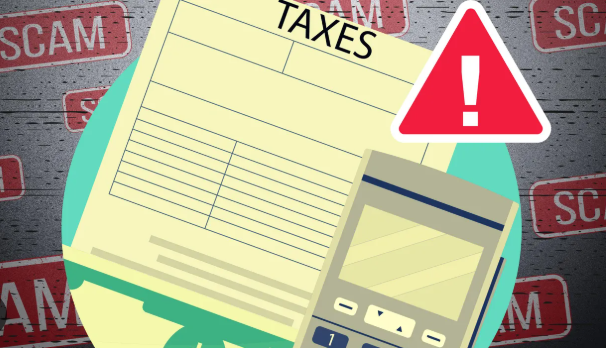Tax Scams Are at an All-Time High! Here’s How to Protect Your Refund
With tax season in full swing, experts are warning taxpayers to be on high alert for scams that could cost them their hard-earned money. Every year, criminals take advantage of the rush to file taxes, using phone calls, emails, and even social media to trick people into handing over sensitive information.
Common Tax Scams to Watch Out For
One of the biggest red flags to look out for is unexpected communication from someone claiming to be from the IRS. The agency has repeatedly stated that it never initiates contact via phone calls, emails, or text messages. If you receive a message demanding payment or asking for your Social Security number, it’s a scam.
Another growing scam involves fake tax preparers. Fraudsters pose as professionals, promising huge refunds or offering to file on your behalf, only to steal your refund once it’s processed. Always verify your tax preparer’s credentials before sharing any information.
Social media has also become a hotspot for tax-related misinformation. Some viral posts encourage people to falsely claim dependents or change their filing status to receive a larger refund. However, the IRS is cracking down on fraudulent filings, and anyone caught submitting false information could face hefty fines, or worse, criminal charges.
How to Get Your Tax Refund Faster
If you want to avoid delays and get your refund as soon as possible, follow these expert-backed tips:
File Early – The sooner you file, the less likely scammers can file a fraudulent return in your name. It also helps you beat the last-minute rush, which can slow down processing times.
E-File & Use Direct Deposit – Electronic filing is processed much faster than paper returns, and direct deposit ensures your money goes straight to your bank account instead of getting lost in the mail.
Double-Check Your Information – One small mistake—like a typo in your name or an incorrect bank account number—can cause serious delays. Take a moment to verify everything before hitting submit.
Track Your Refund – Use the “Where’s My Refund?” tool on the IRS website to monitor the status of your payment. If something looks off, contact the IRS directly.
Be Cautious with Your Personal Information – Never share your Social Security number or tax details over the phone or via email unless you are absolutely sure of the recipient’s legitimacy.
How to Protect Yourself from Tax Scams
![]()
🚨 If you receive a suspicious call, hang up immediately—the IRS does not demand payments over the phone.
🚨 Do not click on links in emails or texts claiming to be from the IRS. Instead, go directly to irs.gov for information.
🚨 Be skeptical of tax preparers who promise huge refunds or ask for payment upfront. Always check their credentials first.
🚨 Monitor your bank account and credit report for any unusual activity after filing your taxes. Scammers sometimes use stolen data to open new accounts in victims’ names.
Tax season doesn’t have to be stressful, but it can be risky if you’re not careful. By staying informed and following these simple steps, you can avoid scams, file your taxes correctly, and get your refund fast.



Comments are closed.